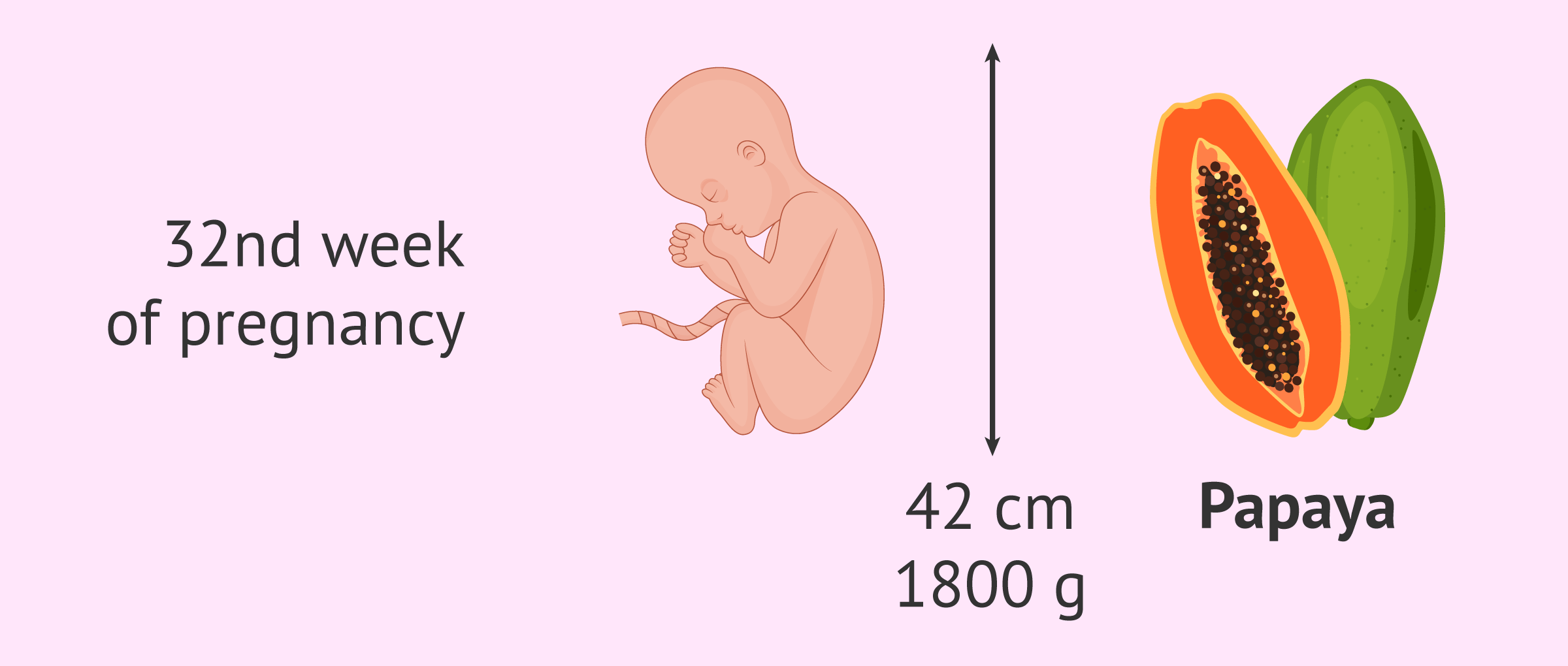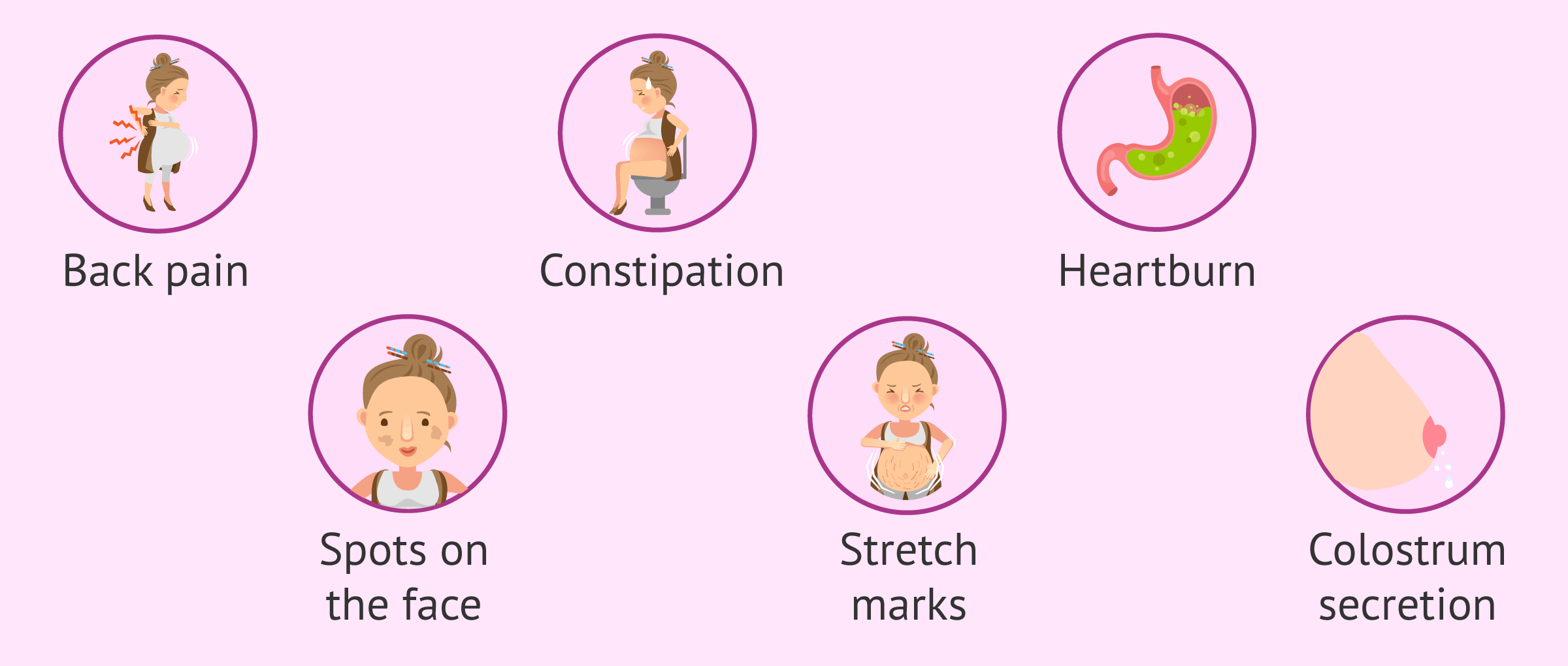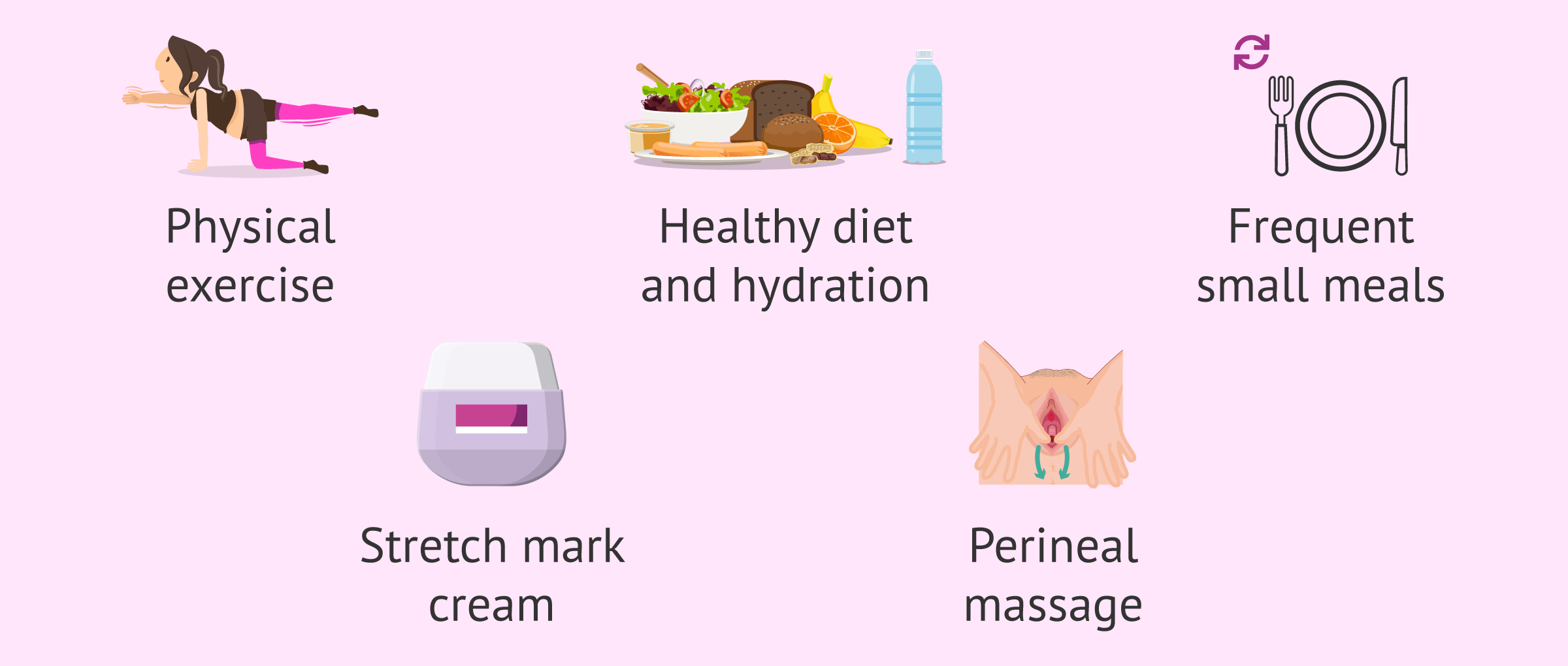A 32-week pregnant woman is nearing the end of her eighth month of gestation. Therefore, the 32nd week of pregnancy belongs to the third trimester, which means that the woman is in the final stage of gestation.
The baby continues to develop, gaining weight and growing, while the mother often feels more and more discomfort due to weight gain and the size of her growing belly.
Provided below is an index with the 8 points we are going to expand on in this article.
- 1.
- 2.
- 3.
- 4.
- 5.
- 5.1.
- 5.2.
- 5.3.
- 6.
- 7.
- 8.
What the baby looks like in week 32
At this stage of gestation, the baby's appearance, although smaller, is already quite similar to what it will look like when it is born. In addition, eyelashes and eyebrows will already be visible, as well as hair on his little head. On the other hand, you will continue to accumulate fat that will help you regulate your body temperature after delivery.
As for measurements, the baby's weight at week 32 is approximately 1,800 grams and measures about 42 centimeters in length.
The baby may already be in the cephalic position, that is, with the head already facing the birth canal. However, if you are breech, there is still time for you to turn around.
Your lungs are still immature in the 32nd week of pregnancy, as there is insufficient production of surfactant.
Surfactant is a substance that prevents the lungs from collapsing, so it is necessary for the baby to adapt to breathing outside the uterus.
Therefore, if premature delivery occurs at 32 weeks, to try to avoid respiratory problems in the baby, the mother is given corticosteroids to accelerate lung maturation.
Symptoms in week 32
Both weight and volume gain in the belly can cause the pregnant woman to become fatigued very quickly and feel tired. The woman may even notice some shortness of breath at times.
However, other symptoms and discomfort are also common in the 32nd week of pregnancy. These include:
- Back pain.
- Heaviness in the legs, appearance of varicose veins and night cramps.
- Swelling in feet, legs and hands.
- Carpal tunnel syndrome.
- Increased urge to urinate
- Constipation and hemorrhoids.
- Acidity, heartburn and reflux.
- Spots on the face (chloasma).
- Stretch marks and itching in the belly area, due to skin stretching.
- Oral problems such as sores, bleeding gums...
- Discharge of colostrum (a slightly yellowish fluid) from the nipples in preparation for lactation. Not all pregnant women will notice it before delivery, so it is normal if you don't have it.
All of this can cause the woman to have difficulty sleeping and insomnia, which will also contribute to increased fatigue.
Finally, the woman may also notice Braxton Hicks contractions in the 32nd week of pregnancy. These are irregular contractions, which do not increase in frequency or intensity, and are uncomfortable (they feel like the belly is getting hard), but not painful. However, if the woman notices regular contractions that increase in frequency and intensity, she should see a doctor promptly, as these may be labor contractions.
Medical control in the 32nd week of pregnancy
In the 32nd week of pregnancy, the third trimester ultrasound can be performed, since it is usually done between this week and the 36th week.
This ultrasound evaluates fetal growth and position, the condition of the placenta (to check that the baby is receiving the oxygen and nutrients it needs) and its location, and the volume of amniotic fluid (which may indicate alterations in the baby's digestive system or kidneys).
In addition, it will be especially important to pay attention to symptoms of preeclampsia. Among them are:
- Abrupt weight gain.
- Swelling (especially in hands and face).
- Headache.
- Changes in vision.
- Nausea and vomiting.
- Urine Lower production
- Abdominal pain, upper part.
The gynecologist will monitor the pregnant woman's blood pressure and weight. However, if any of these symptoms of preeclampsia appear, a specialist should be consulted as soon as possible.
On the other hand, the doctor will probably ask the pregnant woman to make a record of the baby's movements, since, despite the lack of space, the baby moves until the end of the pregnancy
Recommendations for week 32
In the 32nd week, but also during the entire pregnancy, it is important for women to do physical exercise adapted to their pregnancy and to take care of their diet with a healthy, balanced and varied diet. In addition, if it includes fiber and the woman maintains proper hydration, it will prevent constipation and the appearance of hemorrhoids.
On the other hand, the correct water intake will also help to avoid urinary tract infections.
However, it is recommended that pregnant women eat small but frequent meals. In this way, digestion will be lighter and heartburn and acidity will be reduced.
Another tip for the 32nd week of pregnancy is to use a specific moisturizer to alleviate itching and the appearance of stretch marks.
Finally, week 32 is the time to start perineal massage, as it may be less effective if done later. This massage is aimed at making the perineum area more elastic, to avoid possible tears at the time of delivery.
Perineal massage should be performed frequently from week 32, if not contraindicated by the specialist. To do so, it is advisable to use a natural sweet almond or rosehip oil and follow the instructions of the gynecologist or midwife.
FAQs from users
How many months equals 32 weeks of gestation?
At the end of the 32nd week of gestation, you will be 8 months pregnant. Thus, the 32nd week is in the third trimester.
Due to the advanced stage of gestation, the fetus is quite developed and it is very possible that, in the 32nd week, the pregnant woman will have more and more discomfort due to the size and weight that the baby is already reaching.
Is it possible to have sexual intercourse in the 32nd week of pregnancy?
Yes, in principle, it is possible to have sexual intercourse in the 32nd week of pregnancy as long as the pregnancy has developed normally and is progressing without complications. For this reason, it is always best to consult the specialist who is handling the pregnancy, since he is the one who knows the particular situation best.
Thus, the specialist may contraindicate sexual relations during pregnancy if any of the following situations occur:
- Cervical insufficiency.
- Placenta previa.
- History or risk of premature delivery or miscarriage.
- Vaginal bleeding.
- Amniotic fluid leakage.
- Multiple pregnancy.
On the other hand, if sexual intercourse takes place in the 32nd week of pregnancy, it will be important to adopt a comfortable position that does not put pressure on the woman's belly, since it will already have a considerable size.
Finally, if the woman experiences pain or bleeding during or after sexual intercourse, she should consult a specialist.
Can the baby have hiccups in the 32nd week of pregnancy?
Yes, a pregnant woman may notice her baby hiccupping inside her womb, which may occur more frequently in the third trimester of gestation.
However, fetal hiccups are a normal part of the baby's development, as these involuntary contractions of the diaphragm serve as training for breathing.
Suggested for you
If you are at 32 weeks gestation, you may want to know what will happen in the next week. To do so, you can access this link: Week 33 of pregnancy.
On the other hand, if you want more information about the tests and controls that are performed during pregnancy, we recommend you to read the following article: Prenatal pregnancy control: tests, analyses and ultrasound scans.
We make a great effort to provide you with the highest quality information.
🙏 Please share this article if you liked it. 💜💜 You help us continue!
References
Chen IL, Chen HL. New developments in neonatal respiratory management. Pediatr Neonatol. 2022 Jul;63(4):341-347. (View)
Di Filippo P, Dodi G, Ciarelli F, Di Pillo S, Chiarelli F, Attanasi M. Lifelong Lung Sequelae of Prematurity. Int J Environ Res Public Health. 2022 Apr 26;19(9):5273. (View)
Locke A, Kanekar S. Imaging of Premature Infants. Clin Perinatol. 2022 Sep;49(3):641-655. (Ver)
Nehab SRG, Villela LD, Soares FVM, de Abranches AD, Junior SG, Moreira MEL. Body composition at 4 to 7 years of age in children born <32 weeks gestational age or 1500 g: A cohort study. Early Hum Dev. 2022 Oct;173:105659. (View)
Sehgal A, Ruoss JL, Stanford AH, Lakshminrusimha S, McNamara PJ. Hemodynamic consequences of respiratory interventions in preterm infants. J Perinatol. 2022 Sep;42(9):1153-1160. (View)
Walters A, McKinlay C, Middleton P, Harding JE, Crowther CA. Repeat doses of prenatal corticosteroids for women at risk of preterm birth for improving neonatal health outcomes. Cochrane Database Syst Rev. 2022 Apr 4;4(4):CD003935. (View)
FAQs from users: 'How many months equals 32 weeks of gestation?', 'Is it possible to have sexual intercourse in the 32nd week of pregnancy?' and 'Can the baby have hiccups in the 32nd week of pregnancy?'.




